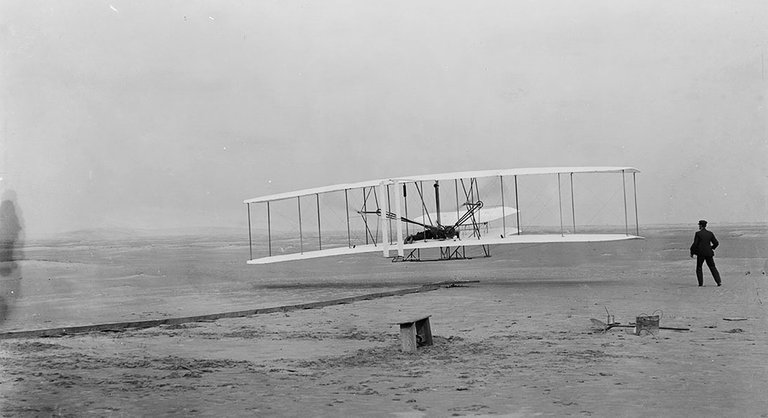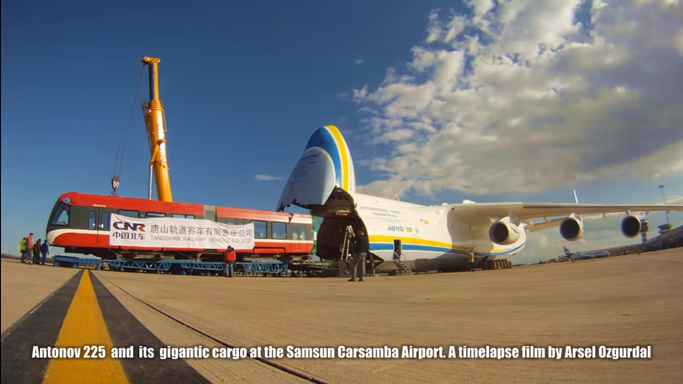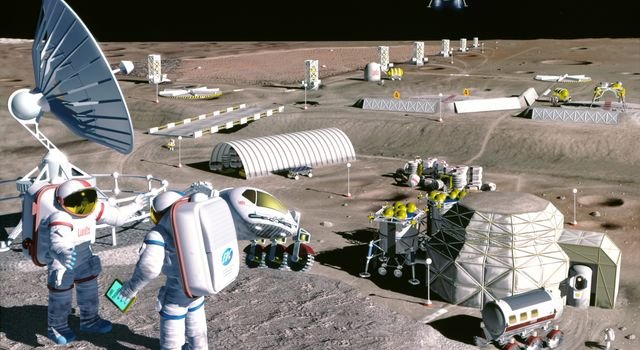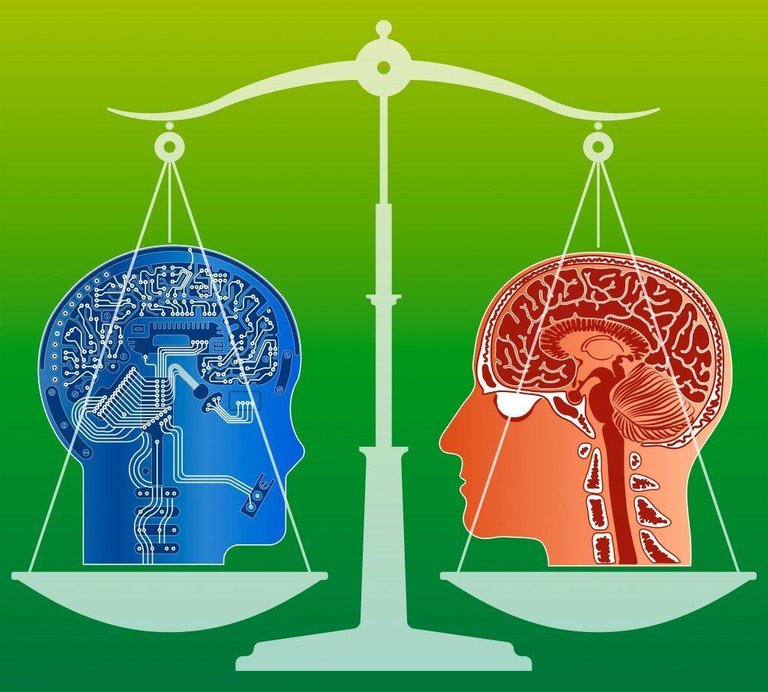The technological singularity is the point at which artificial intelligence would evolve at such a pace that future predictions become impossible.

Source
The name was gotten from blackhole where laws of physics no longer hold. The advances in almost every sphere of science are growing at an astronomical rate. A century ago the Wright Brothers created a flying machine. It has an "incredible" flight time of 59 seconds flying over a distance of 852 feet.

Source
Today we have jets capable of lifting armored tanks and trains, for instance, the Soviet Union's Antonov An-225 Mriya with a maximum payload of up to 551,150 lb or 249997.435 kg and travels 4000km on the maximum payload.

Image Courtesy: Youtube
Today there is much much scientific interest in the possible colonization of Mars since it is the planet that has the nearest characteristics of Earth. Mars contains water and has the closest surface conditions to that of Earth. Elon Musk's Space X project is working towards colonization of Mars as he plans to do that by offering transportation services
One of Elon Musk's stated goals for his company SpaceX is to make such colonization possible by providing transportation.

Google free image: NASA
From SpaceX Web Page you can see this objective clearly stated:
SpaceX designs, manufactures and launches advanced rockets and spacecraft. The company was founded in 2002 to revolutionize space technology, with the ultimate goal of enabling people to live on other planets.
Half a century ago, if you compare the processor power then to now, it is 1 billion times more advanced. Similarly, transistors shrunk from 10,000 nanometers to just 10 nanometers.
If today’s 2nd generation Intel® Core™ processor had been manufactured using 1971-era technology, it would be the size of a conference room.
Using the 1971-era technology, today's 2nd generation Intel Core processor would be the size of a conference room measuring at least 23ft by 10ft!
Raymond "Ray" Kurzweil, an American computer scientist, inventor, author, and futurist. He is a man with twenty-one honorary degrees including three honors from three different USA presidents. He had an 86% successful prediction rate and he strongly believed by next twenty-eight years (2045), that the computing power of future computers could enable them to be artificially intelligent.
Brain Vs Computer
The human brain simulation needs about 1 exaFLOP, billion billion calculation per second
As of today, the world's fastest supercomputer is Chinese Sunway TaihuLight which has a speed of 125 PFLOPS at peak.
A petaFLOP(PLFLOP) is a quadrillion (one thousand trillion) floating point calculations per second.
In contrast, the human brain operates at 1 exaFLOP (an estimate as it is a difficult subject to calculate), which is equivalent to a billion billion calculations per second.
It is only a matter of time till a supercomputer capable of more calculation than our brain is produced. Then the next challenge would be to simulate the human intelligence. The human brain executes processes in a method quite different from today's computers.
When we discuss computers, we are referring to meticulously designed machines that are based on logic, reproducibility, predictability, and math. The human brain, on the other hand, is a tangled, seemingly random mess of neurons that do not behave in a predictable manner.
The computer scientists are up for an uphill task which many futurists are optimistic about achieving this technological singularity. What are your thoughts on this?
Let me know in the comment section below.

I strongly believe that technology can not create what surpasses man's intelligence ('intelligence' in all ramifications). It can only continue to create what can only make man live better reducing work at some point.
But I fear, too much of everything is bad.
I am always open to be surprised. Many would say around 1902 when the Wright Brothers are running their blueprint on the flying machine that a machine capable of flying would never happen. But what do we have today? Airplanes capable of flying with tons of materials in it. So the future may surpass the expectation of whatever you think or believe in. We just cannot conclude or tell now. Thanks a lot.
I just hope it doesn't end in total disaster. It's very hard to look around without technology, although some are good but I hope technicians does not create one to think it will surpass God.
Well we look forward to what the future holds for us. Fingers crossed 🙏
So far, we have been doing fine without disaster. I think we could continue that way.
excellent article, my working career started in 1981. The first PCs were sold then for about R5 500. XT operating at 4 MHZ, the computer's hard drive was an amazing ten meg. Then the AT at 6 MHZ, I bought one as it was cutting edge!
10MB HDD? That's a classic computer! Do you still have it around? That would be a collector's item. The only "old tech" I could recall ever seeing in use is floppy disk with its legendary 1.44MB capacity.
those were modern, they were called stiffies, we used the old floppies five and a quarter inch. They were dreadful, the dust destroyed them so quickly. I remember trying to load a game with 33 floppies, had to give up as some disks were corrupted with dust. Sadly I don't have them anymore, they took up so much space.
the monitors were monochrome, first green, then a fancy white (which I had), then the amazing 16 colours (VGA?), then the super VGA with 256 colours. I am really old!!
I think there is a benefit to see these tech revolution, imagine using a computer with 10MB HDD to suddenly be alive to see 3TB HDD! That is more interesting than a James Bond movie!
I understand the bulkiness of old computers, it could take up unnecessary space, imagine packing up all these floppies when you could rather sneak in a 1 TB memory card in your jeans small pocket!
I heard that scientists are trying to ‘upload' human brain (information) into the computer. They are simulating the neuron pattern for each action or gesture, (especially the basic and distinct ones), i believe we are already in the future. The same is explored in the movie Transcedence.
The computer needs to be fast enough or at least be equivalent enough in calculation speed, with the human brain, before the "upload" stands a better chance of being successful. But the next 40 years would be wonderful to see. It would be as exciting as it would be intriguing.
Still plenty place is just badly organise
@juanmallorca, let's get busy and start organising it. It is still the only home for now.
Is funny, I drive a lot and sometimes I can drive for miles and miles and is nothing and later everybody is together living on top of another
Human beings love to be near one another, if not why do we see so much bush along interstate highway only to arrive the city and see houses on top of each other?
Control of population
If that is what it's about, then I think they are not really doing a good job of it.
@greenrum After watching artificial intelligence robot called sophia i kept wondering how it was design. there is no impossibility future science but my worry is lets not create what will destroy us. @theheralds
I've seen Sophie doing a lot of interviews. I never worry that much about the future as I believe in crossing a bridge when one gets to it. Not worrying if the bridge could be crossed while sleeping comfortably in our bedroom.
We are very near to colonise Mars...Technologically we are moving in that direction but at the same time it's becoming compulsion for human race to find "New Habitat"
Is Earth no longer habitable?:)
Thanks for joining in the conversation
In near future that's s what happens
At least for now we are good.
the major challenge to my mind is the insane information overload. The key must be how to filter it
You have to sift through the pile of information (sometimes mostly garbage) to get what you really need.